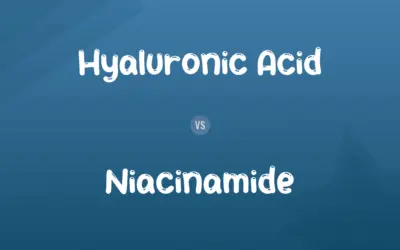Plaque vs. Calculus: Difference and Comparison
By Muazma Batool & Muneeza Rehman — Published on March 14, 2024
Plaque is a sticky, colorless film of bacteria that forms on teeth, leading to dental issues if not removed, while calculus, or tartar, is hardened plaque that has mineralized on the teeth and requires professional removal.

Difference Between Plaque and Calculus
Dental plaque is a soft, sticky film that accumulates on the surfaces of teeth. It consists of bacteria, microbial substances, and food debris. Regular brushing and flossing can effectively remove plaque, preventing tooth decay and gum disease. Calculus, known as tartar, is what plaque becomes when left untreated. It hardens on the teeth due to the mineral content in saliva, creating a rough surface that can lead to further plaque accumulation and gum irritation.
Muazma Batool
Mar 14, 2024
The formation of plaque is a continuous process and can begin to reform on the teeth just hours after brushing. Its soft nature allows for easy removal with good oral hygiene practices. Calculus, on the other hand, cannot be removed with a toothbrush or floss; it requires professional dental cleaning. This distinction highlights the importance of regular dental care to prevent plaque from advancing to calculus.
Muazma Batool
Mar 14, 2024
Plaque's presence is primarily indicated by its soft, sticky texture and is virtually invisible. It can lead to cavities, gum disease, and bad breath if not regularly cleaned. Calculus has a harder texture and can be visibly identified as a yellow or brown deposit on the teeth. Its rough surface provides an ideal environment for additional plaque buildup, exacerbating dental problems.
Muazma Batool
Mar 14, 2024
Preventing plaque buildup is key to avoiding calculus formation. Good oral hygiene practices, including brushing twice a day, flossing daily, and using an antiseptic mouthwash, can significantly reduce plaque levels. Once plaque has hardened into calculus, only a dentist or dental hygienist can remove it, typically through scaling and polishing, emphasizing the need for regular dental check-ups.
Muazma Batool
Mar 14, 2024
Both plaque and calculus contribute to the development of periodontal diseases but at different stages and severities. While plaque can be managed with routine home care, calculus formation signifies a progressed state of neglect, requiring professional intervention to prevent further dental damage and restore oral health.
Muazma Batool
Mar 14, 2024
Plaque vs. Calculus Comparison Chart
Composition
Soft, sticky film of bacteria and food debris.
Hardened plaque that has mineralized.
Muazma Batool
Mar 14, 2024
Removal
Can be removed with regular brushing and flossing.
Requires professional dental cleaning.
Muazma Batool
Mar 14, 2024
Visibility
Mostly colorless and not easily seen.
Yellow or brown deposit that can be seen.
Muazma Batool
Mar 14, 2024
Effect on Oral Health
Leads to cavities and gum disease if not removed.
Exacerbates plaque accumulation and gum irritation.
Levi
Mar 14, 2024
Prevention/Management
Good oral hygiene: brushing, flossing, mouthwash.
Professional removal through scaling and polishing.
Jonathan
Mar 14, 2024
Plaque vs. Calculus Definitions
◉Plaque
A soft, sticky film of bacteria on teeth.
Brushing twice a day helps remove plaque and prevent tooth decay.
Muazma Batool
Feb 27, 2024
◉Calculus
Requires professional dental tools for removal.
Dental hygienists use scaling tools to remove calculus during cleanings.
Muazma Batool
Feb 27, 2024
◉Plaque
Accumulates regularly and can be invisible.
Even if you can't see plaque, it's important to brush regularly to prevent its buildup.
Muazma Batool
Feb 27, 2024
◉Calculus
Hardened dental plaque from mineralization.
Without regular dental cleanings, plaque can harden into calculus.
Muazma Batool
Feb 27, 2024
◉Plaque
The main cause of cavities and gum disease.
Neglecting to clean plaque off teeth can lead to serious dental issues.
Muazma Batool
Feb 27, 2024
◉Calculus
Leads to more severe dental problems if not addressed.
Calculus contributes to gum disease and can complicate oral health significantly.
Muazma Batool
Feb 27, 2024
◉Plaque
Easily preventable with good oral hygiene.
Regular use of floss removes plaque from between teeth, where a brush can't reach.
Olivia
Feb 27, 2024
◉Calculus
Visible as yellow or brown deposits on teeth.
You might notice calculus buildup near the gum line, appearing as a yellowish tint.
Muazma Batool
Feb 27, 2024
◉Plaque
Managed through daily cleaning routines.
Antiseptic mouthwash can help reduce plaque and the bacteria that cause it.
Muazma Batool
Feb 27, 2024
◉Calculus
Prevents by maintaining oral hygiene and regular dental visits.
Preventing plaque buildup is key to avoiding calculus formation.
Kaitlyn
Feb 27, 2024
◉Plaque
A flat plate, slab, or disk that is ornamented or engraved for mounting, as on a wall for decoration or on a monument for information.
Muazma Batool
Feb 27, 2024
◉Calculus
(Medicine) An abnormal concretion in the body, usually formed of mineral salts and found in the gallbladder, kidney, or urinary bladder, for example.
Muazma Batool
Feb 27, 2024
Plaque vs. Calculus Frequently Asked Questions
What is calculus or tartar?
Calculus, or tartar, is plaque that has hardened on the teeth due to mineralization, requiring professional cleaning for removal.
Muazma Batool
Mar 14, 2024
How can I prevent plaque and calculus formation?
Regular brushing, flossing, and dental check-ups are essential to prevent plaque and calculus buildup.
Muazma Batool
Mar 14, 2024
Why is calculus removal important?
Removing calculus is crucial to prevent further plaque accumulation, gum irritation, and periodontal diseases.
Muazma Batool
Mar 14, 2024
What is dental plaque?
Dental plaque is a soft, sticky film of bacteria and food debris that forms on teeth, potentially leading to cavities and gum disease if not removed.
Muazma Batool
Mar 14, 2024
Can plaque turn into calculus?
Yes, if plaque is not removed, it can mineralize and turn into calculus.
Henry
Mar 14, 2024
What are the signs of plaque and calculus?
Plaque is mostly invisible, but calculus appears as yellow or brown deposits on the teeth.
Kaitlyn
Mar 14, 2024
How often should I visit the dentist to prevent calculus?
It's recommended to visit the dentist every 6 months for a check-up and cleaning to prevent calculus formation.
Lucas
Mar 14, 2024
Is it possible to remove calculus at home?
No, calculus cannot be removed with regular home brushing and flossing; it requires professional dental tools.
William
Mar 14, 2024
Can calculus cause tooth loss?
Yes, if left untreated, calculus can lead to severe gum disease and potentially result in tooth loss.
Muazma Batool
Mar 14, 2024
What is the difference between plaque and calculus?
The main difference is that plaque is a soft, sticky film that can be removed with brushing, while calculus is hardened plaque that requires professional cleaning.
Jonathan
Mar 14, 2024
Content Creators
Written by
Muazma BatoolAs a content editor, Muazma Batool is not just a grammar guru but a creative mastermind who breathes life into every word. With an eagle eye for detail and a passion for storytelling, she transforms bland text into engaging content that captivates audiences and drives results.
Co-written by
Muneeza RehmanAt Comparisons.wiki, Muneeza skillfully navigates the vast sea of information, ensuring clarity and accuracy as the lead content editor. With a keen eye for detail, she curates every comparison to enlighten and engage readers.

































